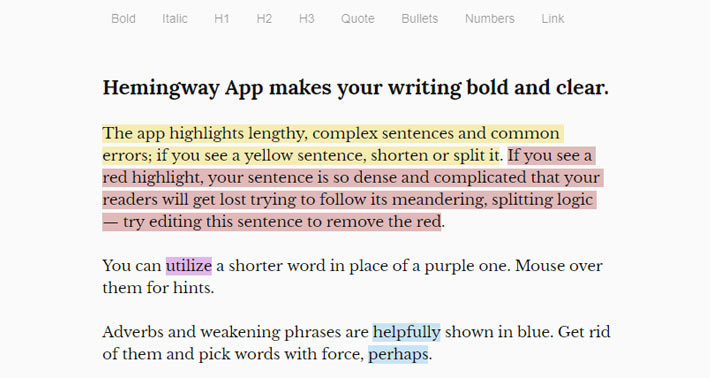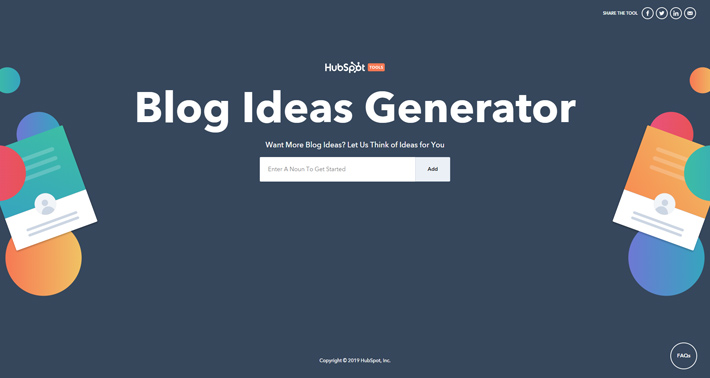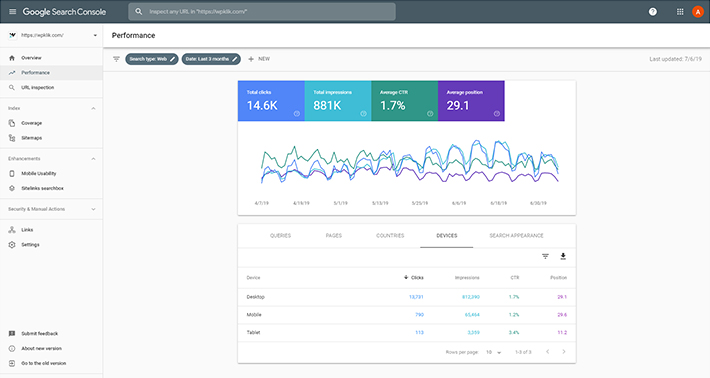10+ Tools for Writing Better Blog Posts in 2024

If you really want to produce engaging content that captures the attention of your intended audience, knowing how to write simply isn’t enough. In fact, there are many different elements to take into account when planning to write a compelling blog post. Once you select a topic that is relevant to the audience you want to attract, you also have to write an eye-catching headline, incorporate elements such as subheadings and bullet points, pick appropriate keywords, and add images that will enrich your posts.
To help you get on the right track, we’ve gathered a list of useful online tools to assist you during your writing. Without further ado, here are some blogging tools that you can use to write better blog posts.
1. Proofreading and Editing Tools
Grammarly

Realistically speaking, mistakes can happen even to the best of writers. And while it’s a natural occurrence to some degree, you still want to prevent some accidental slip-up from damaging your authority on a certain topic – no matter how minor the mistake itself may be.
This is precisely where Grammarly can come in handy. The app picks up on all accidental spelling, grammar and punctuation errors. Furthermore, it provides an explanation as to why a certain part of your text may be incorrect, and even offers suggestions on how you might fix it. Grammarly also monitors your text’s clarity and helps make your writing easier to understand by offering simpler or shorter solutions to certain words, phrases or sentences. You can set different goals based on your intent, writing tone, formality, and the audience that you plan to attract, which will get you more personalized writing suggestions related to style.
There are many ways in which Grammarly can be used. Aside from its default in-app grammar checker, you can also access it by installing a Chrome browser extension, which will give you the option of using Grammarly in any editor within the browser.
Hemingway

This is another great tool for improving the quality and overall readability of your content. The moment you access the Hemingway app editor and paste your content there, the app will highlight parts of the text that can be changed and improved, sorting out different suggestions according to colors. There are 5 different colors within the app that represent different grammar suggestions. Yellow lets you know about lengthy sentences that can be shortened or split into two. Red is used to point out that a sentence is too dense or complicated and should be edited for better understanding. Words highlighted in purple are deemed too complex, and the app offers simpler suggestions upon hovering. Green indicates the use of the passive voice in a sentence, while blue highlights adverbs which the app considers to be “weakening” phrases.
2. Tools for Blogging Ideas
Portent’s Content Idea Generator

Figuring out a title for your post can be a surprisingly tricky part of producing content – even if you’re done with writing the actual article. Tools like Portent’s Content Idea Generator can prove extremely helpful in case you end up getting stuck on the title. You just need to enter the subject of your article in the empty field, and the generator will offer you a title suggestion, alongside a few reasons why it fits your subject. If you don’t like the first suggestion, don’t worry – you can refresh the generator as many times as you like.
Answer The Public

Answer The Public merges the suggested searches from Google and Bing and provides an excellent insight into the most common questions that users type in these search engines. This tool is an excellent opportunity to get to know your audience better and target your keyword research. In turn, this can give you plenty of ideas about which subjects to explore in your content in order to provide answers to your audience.
HubSpot’s Blog Ideas Generator

If you’re ever stuck on which topic to tackle next, Hubspot’s Blog Ideas Generator makes it particularly easy to think of a new one. The only thing you need to do is add a term (or terms – you can enter up to three at once) you’d like to blog about in the suggested field, and click on “Give me blog ideas”. The tool will then generate suggestions that may not be completely grammatically correct, but you can work your way around this. In the worst case, you’ll end up with some inspiration that will help you generate your own blog ideas.
3. Organization Tools
Trello

Trello is a powerful and flexible project management tool ideal for organizing projects and tasks. It can be used both as a personal organizer and to help keep track of the workload of an entire team of people. The integrated card system allows team members to suggest ideas, interact and work on projects together with ease by adding comments, files, images, and more. This ability to bounce different ideas back and forth with your team may very well inspire you to write an exceptional piece of content.
Google Calendar

This time-management and scheduling calendar service provides its users with the ability to easily keep track of all important tasks and events. You can set up reminders and schedule publishing times for individual or multiple posts. Efficient organization and a streamlined overview of all your tasks can even motivate you to keep producing quality content and help you maintain your creative flow. Just keep in mind that to access the Google Calendar tool, you need to be logged in to your Gmail account first.
Evernote

Evernote is another organization tool that allows you to make notes and to-do lists, and collect and share ideas with speed and utmost ease. And when we say share ideas, we mean that in every sense of the word. Anything that inspires you – be it a note related to a particular topic, an image, or even a website link – can be easily dropped into Evernote and kept under a relevant tag for better organization. All your notes can be grouped by topic, project, date, or anything else you prefer.
4. Tools to Create Well-Optimized Content
Yoast WordPress SEO Plugin

In the online world of search engines and page ranks, aside from producing high-quality and relevant content, on-page optimization plays a vital role in getting noticed. It’s fairly simple – the more optimized your content is, the higher your page rank will be. If you’re using WordPress to manage your blog, this is one of the best tools for on-page optimization. Not only is Yoast SEO plugin easy to set up, it is also among the most all-encompassing WordPress SEO plugins out there.
In addition to optimizing your pages and posts for keywords, keyphrases, and synonyms, Yoast SEO also helps you set up and optimize categories such as slug and meta description. The plugin lets you know if you don’t have enough internal and outbound links in your post, and helps you boost the readability of your text by analyzing it and giving suggestions about what could be improved. Finally, apart from assisting you with optimizing individual posts, it also takes care of the technical optimization of your whole site.
Keyword Planner

One of the main reasons why keyword research is so important when planning your content is because it helps you learn more about your audience and the queries they search for. In turn, this gives you the opportunity to prioritize those queries and spread appropriate keywords throughout your content for a better ranking in search engine results. Keyword Planner is a tool that lets you search for and discover popular keywords and phrases in your niche related to your products and services (or the subjects you wish to write for).
Once you enter a particular set of keywords in Keyword Planner, Google gives you an insight into how popular they are, their search volume, as well as some related keywords. So, when you find the keywords that work for you, you can implement them into your content strategy.
aHrefs

No matter what niche you’re from, researching your competition is essential if you want to determine what works for your niche and what doesn’t. In the sea of many free SEO tools that can be found on the web, aHrefs is easily one of the most complete tools you can find. It’s designed in a way that helps you create well-optimized content and grow traffic by applying different strategies to monitor your competition.
Alongside options like Keyword and Site Explorer (the latter of which allows you to monitor the traffic and backlinks of any website or URL), aHrefs also comes with the Content Explorer feature, thanks to which you can conduct an in-depth analysis of the best articles in your niche. Plus, with the Rank Tracker tool, you get to observe your own rankings and compare them to your competitors.
Wrapping Things Up
Most of the tools we’ve selected on this list are either free or offer a reasonable price and free trials. If you’re serious about the quality of your blogging and strive to produce posts that will make an impact in your niche and get noticed by the right audience, some of these tools are bound to help you out. We highly recommend that you give them a try.




